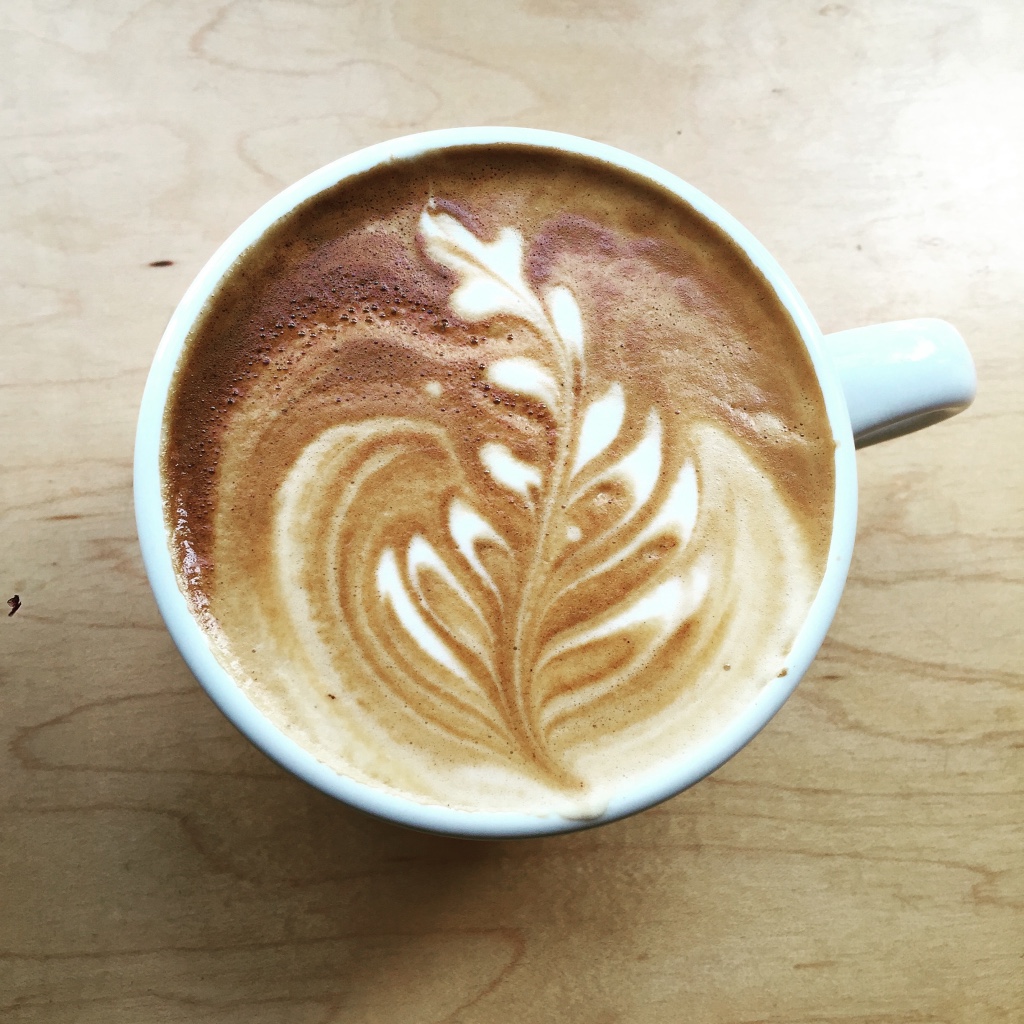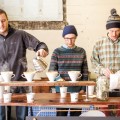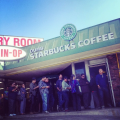 This week and last week have been filled with a litany of discussion, articles, and rising tempers from the specialty coffee community due to an offhand comment made by Anthony Bourdain in an interview. Below is the comment in question.
This week and last week have been filled with a litany of discussion, articles, and rising tempers from the specialty coffee community due to an offhand comment made by Anthony Bourdain in an interview. Below is the comment in question.“There are few things I care about less than coffee. I have two big cups every morning: light and sweet, preferably in cardboard cup. Any bodega will do. I don’t want to wait for my coffee. I don’t want some man-bun, Mumford and Son motherfucker to get it for me. I like good coffee but I don’t want to wait for it, and I don’t want it with the cast of Friends. It’s a beverage; it’s not a lifestyle.”
Tony Konecny, founder of Tonx (which was acquired by Blue Bottle Coffee), wrote a great piece partially in response to this quote, and partially as a way to call out the specialty coffee community. He’s been involved for nearly 15 years, and his voice means something to many active baristas, roasters, and writers. If you care about coffee, stop what you’re doing now and go read it.
I’d like to highlight some of Tony’s thoughts and share a few of my own.
I’ve been working in and writing about coffee for the better part of the last seven years. I’ve attended coffee conferences and reviewed coffee shops and roasters from around the world. Early on, I discovered that the bitter coffee I grew up watching my mom drink wasn’t necessarily what coffee had to taste like; I found a world of flavors, brewing techniques, and gadgets that could help me achieve a better cup. I started experimenting – first on my own, and then with the help of recipes I found online or from other coffee fanatics. I found what I liked and what I didn’t, and I learned that there’s a huge gray area between “good” coffee and “bad” coffee. I also found out that people will vehemently defend their definition of “good” coffee.
Something that I had taken for granted, until I read Tony’s piece, was the culture. If you’ve ever been into a specialty coffee shop, you know the culture I’m talking about. It’s the same environment that Anthony Bourdain was speaking about in his throwaway comment. Call it hipster, call it trendy, call it whatever you want. It’s the environment that reeks of arrogance, upturned noses, and high school level cliqiness (if that’s a word). Perhaps you’ve felt it when you’ve walked into a coffee shop and suddenly had the overwhelming sensation that you just don’t belong. That somehow, someway, everyone behind the counter knows something that you don’t. Maybe it’s the way the barista won’t meet your eye. Maybe it’s the fact that everyone in the shop is staring at their MacBook screens behind designer glasses.
Or maybe it’s the coffee.
The reason why I say that I took the culture for granted is because I never really stopped to think about it. In the beginning I felt out of place – like attending a metal show in cargo shorts and a polo shirt. I pushed through, ordered my coffee, and got on with my life. Who really cares what the vibe of the coffee shop is as long as the coffee tastes good, right?
Now I have more buy in. I’ve dedicated time and effort towards the coffee community, because I think it’s worth it. I’ve met some amazing people that are doing incredible things in war-torn countries using coffee. I’ve looked into the history of coffee and discovered that it wasn’t pushed forward because of large scale corporations or faceless kingdoms – coffee became the widespread commodity it is today because of individuals who cared. I’ve researched the Chemex and Aeropress – some of the brewing devices that specialty coffee fans love to brew with – and found that their inventors were eccentric, interesting, and passionate people.
Slowly, over time, I’ve become a coffee disciple. And so, I started to proselytize.
Often, I talk with my friends and colleagues about how they can brew their coffee better. I frequent online coffee forums to discuss brew ratios like some people discuss MLB stats between games. I’ve been trying to get people to come to specialty coffee.
Tony’s post showed me that I have it backwards. Specialty coffee needs to come to people. Craft beer has done it. Why hasn’t coffee? To a large degree, I think it’s because of the culture that we (the specialty coffee community) has developed. The outrageous barista competitions. The atmospheres at coffee shops. The sanctification of coffee, as if brewing it is some lofty religious experience. At some point down the crazy, windy road that coffee has taken over the past two (or more) decades, we lost sight of the fact that it’s a beverage that many people – not a select few – enjoy. It’s a ubiquitous drink that we’ve turned into a rare experience.
I’m not trying to throw the baby out with the bathwater here – I will remain passionate about coffee. I can’t help that. I strongly believe, however, that the community as a whole needs to do a much better job of reaching out to the millions of people drowning in K-Cups, Nespresso, and Burger King coffee and extend a lifeline. We need to make specialty coffee 1) affordable, 2) as good as we claim it to be, and 3) approachable.
Buying specialty coffee brewed in a coffeehouse is expensive. Buying a bag of specialty coffee and brewing in your home is much more affordable, but most consumers won’t start there. If we’re talking about bringing great coffee to the masses, we need to begin in coffee shops. As it stands, paying upwards of $4 for a cup of third wave coffee is normal. That’s just too expensive. Tony has been working to achieve a “buck-a-cup” coffee, as this article points out. I like this project, and I love the point that it’s making: affordable specialty coffee is possible.
If we’re going to be bringing coffee to the average joe, it needs to taste amazing. This may seem like a given, but trust me when I say it’s not. Just because a coffee shop roasts their own coffee doesn’t mean they do it well. On top of that, just because a shop offers $6/cup single origin roasts doesn’t mean the product is actually worth the price tag. Consumers play a big role here: if the coffee you’re getting sucks, respectfully talk to the barista or manager. If they’re a truly great coffee shop, they’ll make you a new drink. If they’re a crappy coffee shop, they’ll refuse. If they refuse, never go back. It’s that easy.
This is also a call for specialty coffee roasters and shops to take a good hard look at their product. Take the time to make sure the product you’re putting out will convince an average coffee drinker to come back to your shop. Again, this may seem obvious. It isn’t.
I’m talking specifically to coffee shops here, but I think the overarching concept applies to the community as a whole. Approachability is where the culture, environment, and other intangibles that make a coffeehouse unique come into play. Customer care also has a vote. I’d like to be clear: I’m not advocating for a certain atmosphere, music choice, or style of doing business. Instead, I would argue that whatever the atmosphere you choose to develop, make it inviting. New customers should feel welcomed, not like they’re on the outside of some sort of secret handshake. They should feel free to ask questions, not scared that they’ll be judged because they’re used to Folgers. What a coffee shop’s brew tastes like starts way before it touches a customer’s lips.
I don’t own a coffee shop. I do, however, own the words that come out of my mouth. This discussion has given me new insight into how I approach specialty coffee, and to be more precise, how I don’t want to act. Coffee became a passion of mine because it was something that seemed so simple on its face, but held so many mysterious beneath the surface. If we’re going to change the culture, we need to do a better job of shifting the paradigm to show that those mysteries are available to everyone.
I spent the first seven years trying to convince my family and friends that specialty coffee is special. I’d like to spend the next seven helping show that there’s nothing special needed to achieve a great cup.
Colin


